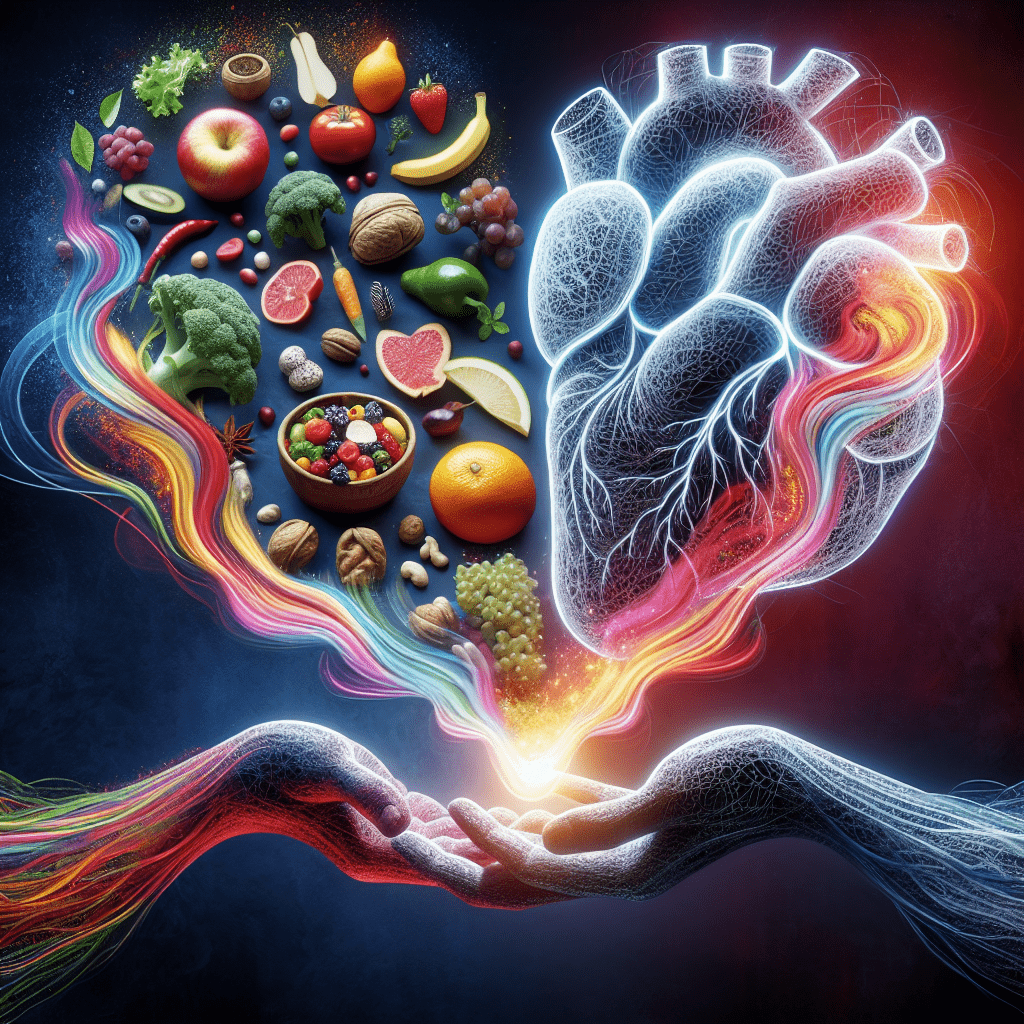[ad_1]
# Feeding Your Feelings: How Food Affects Emotions
## Introduction
We’ve all experienced it—reaching for a bar of chocolate after a stressful day or celebrating a birthday with a lavish meal. Food does more than just satiate our hunger; it also plays a pivotal role in influencing our emotions. The connection between food and mood is complex and multifaceted, encompassing physiological, psychological, and social dimensions. This article delves into how our dietary choices impact our emotions and provides practical tips for eating your way to a happier, healthier state of mind.
## The Science of Food and Mood
The food we consume can affect our brains and, consequently, our emotions in several ways. Nutrients in food contribute to the structure and function of our brains, affecting neurotransmitter pathways, synaptic transmission, and membrane fluidity. In short, what we eat directly affects the functioning of our brains and, by extension, our emotions.
### Blood Sugar Fluctuations
Foods high in sugar and refined carbohydrates can lead to quick spikes and subsequent crashes in blood sugar levels. These fluctuations can result in feelings of irritability, mood swings, and depression. On the other hand, complex carbohydrates found in whole grains, vegetables, and fruits can help stabilize blood sugar levels, providing a more stable energy source and mood.
### Essential Nutrients
Certain nutrients have been directly linked to brain health and emotional well-being:
– **Omega-3 Fatty Acids:** Found in fatty fish, flaxseeds, and walnuts, these fatty acids are crucial for brain health, potentially easing symptoms of depression.
– **Vitamins and Minerals:** Vitamins B (particularly B12 and folate), D, and minerals such as iron, magnesium, and zinc play significant roles in mood regulation. A deficiency in these nutrients can negatively affect your emotional state.
– **Amino Acids:** Tryptophan, an amino acid found in protein-rich foods, is a precursor to serotonin, a neurotransmitter that promotes feelings of happiness and well-being.
### Gut Health and Mood
The gut-brain axis represents a remarkable example of how our diet can influence our emotions. The gut is often called the “second brain” because of its significant impact on mood and mental health. Probiotics (found in yogurt and fermented foods) and prebiotics (found in bananas, onions, and garlic) support a healthy gut microbiome, which in turn, can improve mood and cognitive function.
## Emotional Eating
While the biochemical impact of food on mood is significant, the psychological aspects of eating cannot be overlooked. Emotional eating, or the act of using food to manage emotions rather than to satiate hunger, is a common response to stress, boredom, or negative emotions. Although it might provide temporary relief or comfort, emotional eating can lead to unhealthy eating patterns, weight gain, and exacerbated emotional distress in the long run.
## Practical Tips for Food and Mood Management
1. **Mindful Eating:** Pay attention to what and when you eat. Assess whether your urge to eat is based on physical hunger or emotional need.
2. **Balanced Diet:** Ensure your diet is rich in fruits, vegetables, whole grains, protein, and healthy fats to stabilize mood and energy levels.
3. **Limit Sugar and Processed Foods:** Reducing intake of these foods can help manage blood sugar levels and minimize mood swings.
4. **Stay Hydrated:** Dehydration can negatively affect mood and cognitive function. Drinking enough water throughout the day can help maintain a balanced emotional state.
5. **Regular Meals:** Eating at regular intervals helps to stabilize blood sugar levels, preventing mood dips and spikes.
## Conclusion
Understanding the intricate relationship between food and mood is essential for both emotional well-being and physical health. By being mindful of the interplay between what we eat and how we feel, we can make informed dietary choices that promote a happier, healthier life.
## FAQs
### Can changing my diet improve my mood?
Yes, tweaking your diet to include nutrient-rich foods can substantially improve your mood by stabilizing blood sugar levels, boosting brain health, and ensuring proper functioning of neurotransmitters.
### Are there specific foods known to combat depression?
While no single food can cure depression, a diet rich in omega-3 fatty acids, whole grains, lean protein, and a variety of fruits and vegetables can help manage or alleviate symptoms of depression.
### How does sugar affect emotional well-being?
High intake of sugar and refined carbs can lead to blood sugar spikes and crashes, which may cause mood swings, irritability, and depression. Moderating sugar intake can help maintain more stable emotional states.
### Is there a link between gut health and anxiety?
Emerging research indicates a significant connection between gut health and anxiety. A healthy gut microbiome, supported by a diet rich in probiotics and prebiotics, may help reduce anxiety levels.
### Can food allergies or intolerances affect my mood?
Yes, food allergies and intolerances can trigger inflammatory responses in the body, which may affect your mood. Symptoms like fatigue and irritability can also stem from the body’s adverse reactions to certain foods. Identifying and avoiding trigger foods can help improve both physical and emotional health.
[ad_2]

Leave a Reply